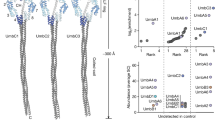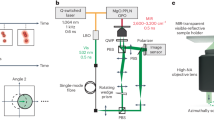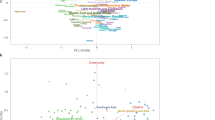Abstract
I NOTE with great interest that experimental work is being done to investigate the effect of visible rays on bacterial growth. During a course of lectures I gave at the Royal Institution in 1911, I showed specimens of B. prodigiosus which I had subcultivated for several generations in a narrow band of spectral light having a maximum at 620 m, which exhibited very marked red pigment formation, and similar cultures grown in light of 550 m and 450 m, which were respectively yellow and whito. I also gave details of the accelerated production of wood alcohol and other fermentation products by irradiating the culture flasks with rays of selected wave-length in the visible spectrum.
This is a preview of subscription content, access via your institution
Access options
Subscribe to this journal
Receive 51 print issues and online access
$199.00 per year
only $3.90 per issue
Buy this article
- Purchase on Springer Link
- Instant access to full article PDF
Prices may be subject to local taxes which are calculated during checkout
Similar content being viewed by others
Author information
Authors and Affiliations
Rights and permissions
About this article
Cite this article
BAKER, T. Effect of Visible Rays on Bacterial Growth. Nature 137, 111–112 (1936). https://doi.org/10.1038/137111c0
Issue Date:
DOI: https://doi.org/10.1038/137111c0
Comments
By submitting a comment you agree to abide by our Terms and Community Guidelines. If you find something abusive or that does not comply with our terms or guidelines please flag it as inappropriate.



